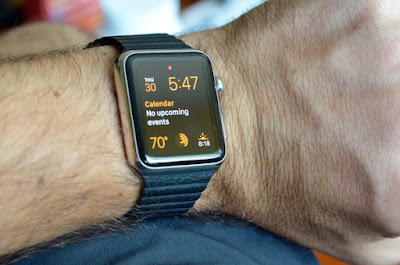Future of Wearables
I attended the Glazed Wearable Conference in San Francisco this week and these are my conclusions about the future of wearable technologies:
1. Not just fitness wearables
Fitness tracking wearables are the first but certainly not the last kind of wearables we will see.

2. Wearables are still just novelties
There is still a disconnect between developers and the users. For the most part, developers haven't learned to make devices that prove useful beyond the first 3 months of novelty. For more, see this article at Pando Daily.
Also, the graph below from Gartner's 2013 analysis of emerging technologies along the hype cycle shows that wearable user interfaces and IoT are still at the peak of hype. If their theory holds, these technologies will be mainstream in 5-10+ years.
3. Low diversity and the assumptions of privileged techies are increasingly problematic
A recent Harvard Business Review article suggests that the young, white, privileged, males that rule the IoT industry will hard code a biased path to perfection. For instance, anyone who skips the gym could potentially be penalized by their health insurer. This raises serious questions about the lack of diversity in the industry and the consequences of unchecked assumptions being built into the data systems of tomorrow.
4. Crowd-funding and low-barrier to entry manufacturing


Indiegogo and Kickstarter, among other crowd-funding sites have facilitated the proliferation of many new wearable devices. Easy access to funds and immediate market validation are aspects that make crowd-funding viable not only for startups, but also established businesses use crowd-funding because they place a large value on feedback. Additionally, barriers to entry for manufacturing are being lowered too. For instance, Highway 1 will invest and mentor new companies from prototype to market.
My Conclusions
Wearable hardware will be diversified and innovated by startups that can prototype quickly, meanwhile, large firms will standardize and optimize this hardware. It would be quite difficult to be successful as a hardware startup unless your technology is tough to match. New startups have the best chance of success in software for wearables; apps can provide yet unknown possibilities and user experiences that will ultimately capture the imagination of the user just as much, if not more, than the hardware.
1. Not just fitness wearables
Fitness tracking wearables are the first but certainly not the last kind of wearables we will see.

2. Wearables are still just novelties
There is still a disconnect between developers and the users. For the most part, developers haven't learned to make devices that prove useful beyond the first 3 months of novelty. For more, see this article at Pando Daily.
Also, the graph below from Gartner's 2013 analysis of emerging technologies along the hype cycle shows that wearable user interfaces and IoT are still at the peak of hype. If their theory holds, these technologies will be mainstream in 5-10+ years.
3. Low diversity and the assumptions of privileged techies are increasingly problematic
A recent Harvard Business Review article suggests that the young, white, privileged, males that rule the IoT industry will hard code a biased path to perfection. For instance, anyone who skips the gym could potentially be penalized by their health insurer. This raises serious questions about the lack of diversity in the industry and the consequences of unchecked assumptions being built into the data systems of tomorrow.
4. Crowd-funding and low-barrier to entry manufacturing


Indiegogo and Kickstarter, among other crowd-funding sites have facilitated the proliferation of many new wearable devices. Easy access to funds and immediate market validation are aspects that make crowd-funding viable not only for startups, but also established businesses use crowd-funding because they place a large value on feedback. Additionally, barriers to entry for manufacturing are being lowered too. For instance, Highway 1 will invest and mentor new companies from prototype to market.
My Conclusions
Wearable hardware will be diversified and innovated by startups that can prototype quickly, meanwhile, large firms will standardize and optimize this hardware. It would be quite difficult to be successful as a hardware startup unless your technology is tough to match. New startups have the best chance of success in software for wearables; apps can provide yet unknown possibilities and user experiences that will ultimately capture the imagination of the user just as much, if not more, than the hardware.



Comments
Post a Comment